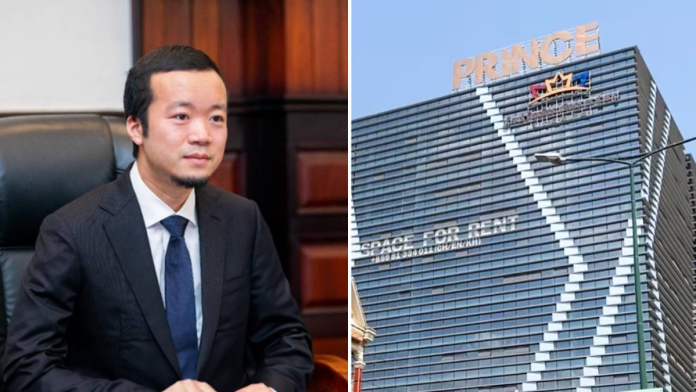South Korea has announced a powerful set of sanctions targeting crime rings in Southeast Asia operated by Chen Zhi after seeing a sharp rise in online scams and illegal detentions involving its citizens. Officials described this move as the country’s first major unilateral sanction against transnational crime and also the largest of its kind so far. The goal is to stop criminal groups that have been running online fraud schemes and trapping victims inside guarded compounds.
For years, many South Koreans have been tricked with fake job offers in places such as Cambodia. Victims were taken to scam compounds, had their documents seized, and were forced to work long hours without freedom to leave. Some were harmed when they tried to escape. These crimes pushed the government to respond with strong measures to protect citizens and block criminal activity spreading across borders.
Prince Group and Chen Zhi Among the Key Targets
The sanctions list includes 15 individuals and 132 entities believed to be linked to online scams, confinement and other criminal acts. A key figure named is Chen Zhi, the chairman of Cambodia’s Prince Group. According to South Korean authorities, Chen Zhi oversaw large scam complexes such as the Taizi and Mango sites, where many South Koreans were detained and forced into scam operations.
South Korea moves to penalize Korbit, GOPAX, Bithumb, and Coinone for KYC and AML violations
Prince Group and Chen Zhi were already blacklisted by the United States and the United Kingdom the month before, and South Korea’s action increases international pressure on the organization. The sanctions list also includes the China-based Huiyuan Group, which was recently labeled a “primary money laundering concern” by U.S. authorities.
South Korea has also sanctioned the leader of another scam syndicate operating in Cambodia’s Bohai region. In addition, a gang member connected to the assault, confinement and death of a South Korean university student in August has been included in the list.
Under these new measures, all named individuals and entities will have their assets frozen in South Korea. This includes money held in banks and virtual assets such as cryptocurrency. They will also face strict limits on financial transactions within the country. Individuals on the list will be banned from entering South Korea.
UK-made components found in Iranian radiation devices despite international sanctions
Officials explained that blocking money flow is one of the fastest ways to weaken these criminal groups. Many of the scam operations rely on quick transfers of money between countries, so freezing assets can significantly slow their activities.
Part of a Wider Regional Effort to Stop Scam Compounds
The sanctions form part of a larger plan by South Korea to break apart Cambodia-based crime rings that have been orchestrating job scams and kidnappings. South Korea and Cambodia recently signed an agreement to fight online scams together. As part of these efforts, more than 60 South Koreans who had been trapped in Cambodian scam centers were rescued and repatriated.
These scam networks often lure victims with attractive online job ads. Once people arrive in Cambodia or other Southeast Asian countries, they are taken to buildings with guards, locked inside, and forced to work in scam operations. Many victims have their passports taken away, making escape difficult. Some report physical threats and violence.
Other Asian regions, including Singapore, Taiwan, and Hong Kong, have also seized assets or detained individuals linked to the same groups South Korea is targeting. The growing number of actions taken across Asia shows how widespread the problem has become.
South Korea’s Ministry of Foreign Affairs said the government will continue using a coordinated approach to tackle these crimes. Officials emphasized the importance of international cooperation to prevent the country from becoming a channel for hiding or moving illegal funds.


